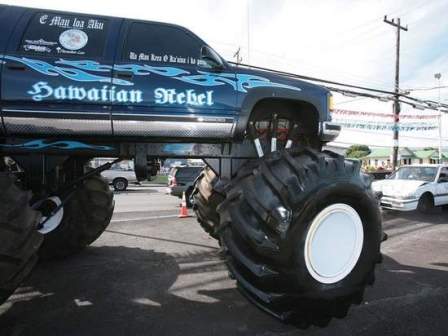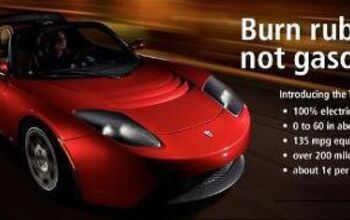Oops
Island Chevrolet’s general sales manager doesn’t like transplanted products. (Yes, I know: any car on The Big Island is an import. But you know what I mean.) So James Severtson commissioned a Chevrolet Suburban-bodied monster truck to kill, crush and destroy a Honda Accord. On the first attempt, the Hawaiian Rebel blew a hydraulic hose and leaked vital fluid. The Honda was non-plussed. After several hours, take two. Wheelman Ryan Kepiki attempted to surmount a Hyundai Excel. The AP reports that “Kepiki drove over the cars’ hoods, destroying the windshields to the seeming delight of the rush-hour crowd. Severtson said the dealership had been planning the crush-fest for a while.” Appreantly, the Bush bailoutfest was a “happy coincidence.” “We’d like to send the message that the best way to support your country is to buy an American vehicle today,” Severtson said.
More by Robert Farago

































Comments
Join the conversation
In communist China, back in their communist days, they made you buy shit you didn't want, couldn't use, and wanted to fold up and shit on. They made you buy it because it was made in China and they didn't let any imports in. Now if there is an American car that you want and fits your needs (Vetts come to mind, among others), and that's what you buy, good for you. You are getting the best car for your money while upholding capitalist principles. If you are buying something that is not serving your best interests, but you buy it anyways just because it's made in America; then you are doing yourself, your country, and the founding fathers a great disservice.